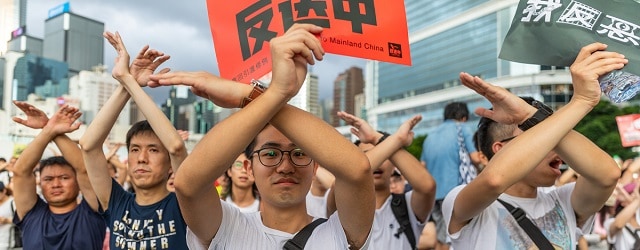"One country, two systems" is rapidly becoming one country, one system.

The new law came into force just an hour before the 23rd anniversary of the historic trading city’s handover from British control—a strict set of security regulations on Hong Kong that is widely regarded as an attempt to curtail freedom of assembly and speech, notably when it includes criticism of Beijing. Legal experts and activists have denounced the law as a direct attack on democracy; businesses are nervous, too.
Erosion of the autonomy that Hong Kong has enjoyed since it became legally a part of the People’s Republic of China in 1997 marks the beginning of the end of its position as a global financial hub, critics argue. Under the original framework, the territory—under what is often referred to as the “One Country, Two Systems” model—was supposed to retain its own legal, political and social structures until 2047.
That date is moving up rapidly. Already rocked by months of pro-democracy protests and the disruption caused by the Covid-19 pandemic, Hong Kong now faces further damage to its image as a wealth center. In the first quarter of this year the economy shrunk 8.9%: its worst recession on record. All major credit agencies have downgraded their rating on the city. Meanwhile, banks in its regional rival, Singapore—known for its political stability and AAA credit ratings—have seen deposits from nonresidents quadruple from a year ago.
The biggest concern by far, however, is the announcement by the Trump administration that it will start paring back Hong Kong’s special trade jurisdiction and treat the territory as just another Chinese city. Close to $40 billion in trade is at stake.
Both the Chinese and Hong Kong governments say fears are overblown, and some Chinese tech companies, apprehensive of increased scrutiny and possible delisting from U.S. stock exchanges, are gravitating toward the Hong Kong Stock Exchange for their initial public offerings and secondary offerings. That suggests the city will continue to attract investment. By the time Beijing has fully tightened its control, however, its gateway city may no longer be the magnet it used to.



